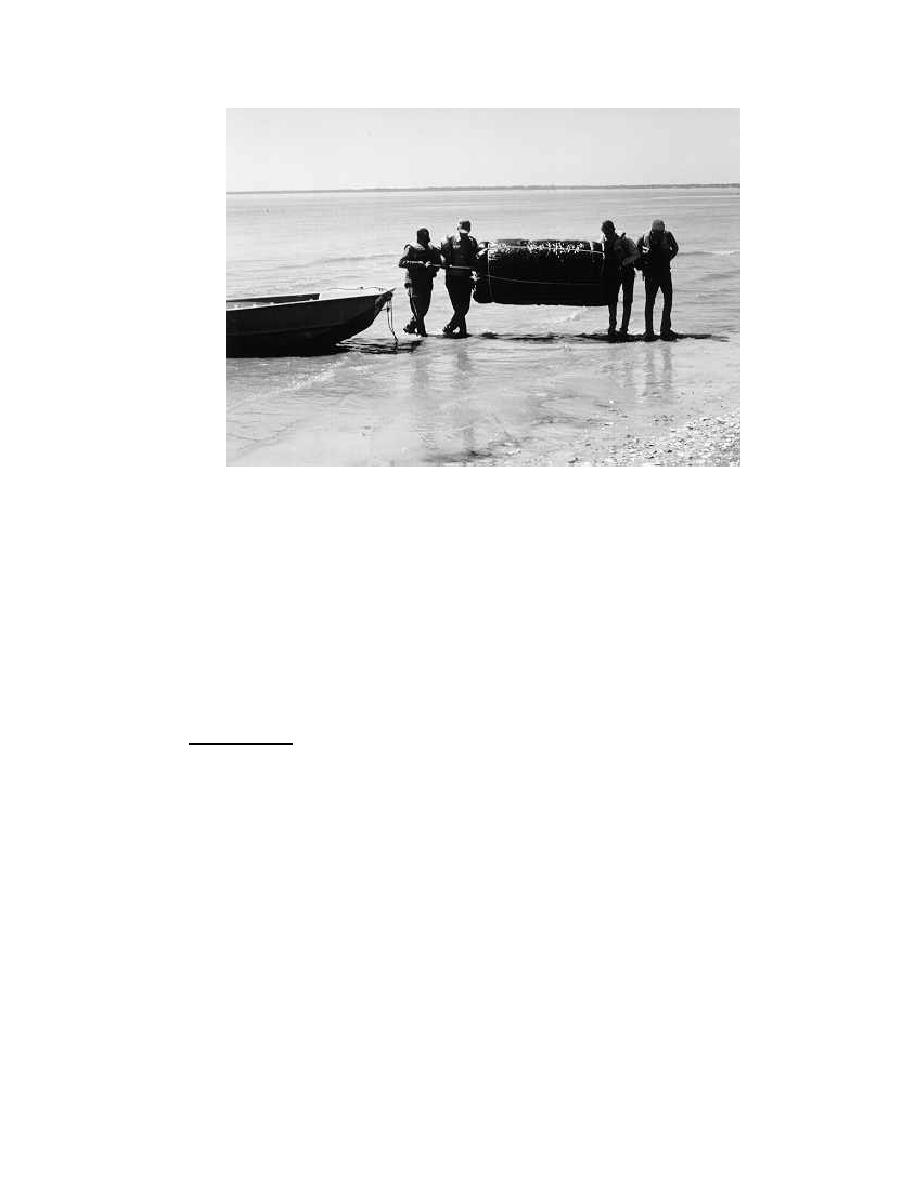
Appendix B: Bioengineering for Streambank Erosion Control -- Guidelines
Figure 25c. Coir geotextile mat in a roll planted with emergent
aquatic plants being carried to the planting site.
Figure 25. Coir geotextile mat being prevegetated in the nursery and transported
to the field site ready for immediate growth. Roots and stems of the plant have
already been established in the mat.
For instance, dormant root pads are used with root wads that were discussed above for the
toe zone.
combination of a thick layer (mattress) of interlaced live willow switches or branches and
wattling. Both are held in place by wire and stakes. The branches in the mattress are usually
about 2 to 3 years old, sometimes older, and 1.5 to 3 m long. Basal ends are usually not more
than about 3.5 cm in diameter. They are placed perpendicular to the bank with their basal
ends inserted into a trench at the bottom of the slope in the splash zone, just above any toe
protection, such as a rock toe. The branches are cut from live willow plants and kept moist
until planting. The willow branches will sprout after planting, but care should be taken to
obtain and plant them in the dormant period, either in the late fall after bud set or in the early
spring before bud break. A compacted layer of branches 10 to 15 cm thick is used and is held
in place by either woven wire or tie-wire. Wedge-shaped construction stakes (2 X 4 X 24 "
to 2 X 4 X 36", diagonal cut) are used to hold the wire in place. A guage and type suitable
for tie-wire is No. 9 or 10 galvanized annealed. It is run perpendicular to the branches and
also diagonally from stake to stake and usually tied by use of a clove-hitch. If woven wire
is used, it should be a strong welded wire (2- by 4-in mesh). The wedged-shape stakes are
driven firmly through the wire as it is stretched over the mattress to hold it in place. The
B-43




 Previous Page
Previous Page
